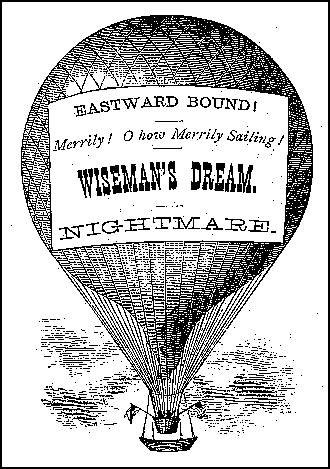Which Art
In Heaven
--- Part I

"Gringo watching," I call it, but I'm also watching the Mexicans, because of my prejudice. I've been living in Mexico on and off for twenty years and slowly I'm developing this prejudice, this terrible prejudice, against Gringos. "They're so pale and wan --- in such a hurry," I think, trying to forget that I'm one of them. Diego isn't prejudiced. At least against the women. He watches them all. Those from north of the border are as interesting to him as those from his own home town. He wants them all.
"What's it like being here, in Mexico, in a wheel-chair?" The lady asking this question is maybe thirty, thirty-five years old. Her chin is sharp and pointed, her face pale, eyes hidden behind large dark glasses. I am watching the balloon-man across the plaza. He has balloons in all sizes and shapes, floating a bunch above his head, on strings. I favor the monstro, the monster head, a funny face with squiggly balloons sprouting over the top of it. I wonder how he makes it look so --- well --- human.
"I have a brother in a wheel-chair, she says. "He's a quad. That's why I'm asking." Throaty voice, no accent. She must be from the west. Colorado, maybe. A brother who's a quad. I've got a brother who's a quad. They always say that. Or: My mother has diabetes, they took off her leg right here (slicing motion across the thigh). We hear that a lot. My uncle's in a wheelchair. Viet-Nam. The non-specific description. Or the very specific: My dad is a stroke victim and his whole side is useless he uses a cane and we have to feed him. All these cripples. A world full of cripples. And we get to hear about all of them. As if we wanted to know, as if we really cared.
I always wonder why absolute strangers come up to me to tell me these stories about people I don't know, will never know, can never care about. "I have enough troubles without this," I think. "They are just trying to reach out, the only way they know how," I tell myself. You're not alone, they are saying, sure that I feel alone. I know someone who's just as bad off as you, they're saying. Don't you feel better now? they think.
Maybe I am softening. I don't pretend I'm a deaf-mute anymore, when they start in on their relatives. Nor do I pretend that I speak no,English, like I did for a few years. "Lo siento --- no entiendo los gabachos," I would say. ("Sorry, I don't understand Americans.") There were times, I have to admit, when I just looked them at them, and said "Oh?" or, nodding my head, "Mmm." Then I let it die.
All these years have probably softened me, made me more willing to listen: People hurting, everywhere people hurting. This lady hurting, with whatever it is that our families feel: angst, maybe; fear, possibly; guilt, certainly.
"Anytime anyone talks to you," Stephen Gaskin used to say, "it is God talking to you, telling you something you need to hear right now." But sometimes I wonder if the words are garbled, the messenger a little befuddled. What to respond? I know, in 1952 or 1966 or 1974 or even ten years ago you couldn't get a whisper out of me on this "my brother's a quad" business. Now, it's different. I'm not exactly sure why, but it is. "It's the same," I start. Then I pause. "No, that's not exactly right. It's complicated and it can be frustrating. But there are things to compensate." I tell her about my two workers. Diego's been working for me for almost five winters now, Chuy started a year ago. They take me about Puerto Perdido, to the river or to the beach to swim. They get me out of the car and down to the water and then back out again, rinsed off, into the car, home again. They buy my food for me at the public market (inaccessible), help me to cook it (I'm learning to cook black beans and rice), even help me eat it. "They help me a great deal, my workers," I tell her.
Two workers. What does that mean? Two young people who are becoming part of my life here, so far from home. Chuy with his dark polished skin, his careful walk, his fine Mayan nose, his serene face. Diego with the great god's head, right out of the Olmec statues, with the eyes he rolls about when I ask him to do something. Especially things he doesn't want to do. Like clean up the mess I sometimes make, not meaning to.
They're fun to be with, filled with that strange mixture --- Mexican manhood and sentiment. "They might be the best part of my stay here," I tell her. "They're very good workers." Chuy, who makes me laugh when I am feeling blue. "¿Qué pasa, gabacho?" What's going on, he'll ask, at those times when I want to stay in bed, don't feel like going out, don't feel like facing the world. Chuy and Diego manage, somehow, talk me into getting up in my chair, getting out. I don't protest, not too much. At this time in my life, I shouldn't be thinking those thoughts anymore, should I? Those old, those very old why-me thoughts.
"They teach me Spanish," I say. "I'd have to pay Berlitz a fortune for the lessons they give me for free." At the same time, I tell her about the frustrations. Mexico isn't set up for wheelchairs. Not many ramps, almost no curb-cuts. There are very few hotels that have rooms for the disabled. I had to scout out the five restaurants (out of twenty) in Puerto Perdido that we can get into without having to go up or down steep stairs. I have yet to get over my unwillingness to be carried in and out of restaurants, bathrooms, banks.
 "It's a concession to being in a Third World Country," I say, "but with my helpers, it doesn't have to be a big deal." They like showing off their strength --- and they can be very funny about it. "Pinche Gringo," Diego will say. "Pesa 400 kilos. " That means he thinks I weigh 850 pounds. It is his way of telling me he likes me: when he calls me Pinche Gringo.
"It's a concession to being in a Third World Country," I say, "but with my helpers, it doesn't have to be a big deal." They like showing off their strength --- and they can be very funny about it. "Pinche Gringo," Diego will say. "Pesa 400 kilos. " That means he thinks I weigh 850 pounds. It is his way of telling me he likes me: when he calls me Pinche Gringo.
There's no special parking, or special placards, I point out. But when I park my car on the beach, so I'm near the water, can get to the ocean without going over all that sand, the police here never bother me. I think of how they would do it in California, or Florida, or Texas. It's against the law, just like it is here, so the police there would probably give me a $250 ticket, and apologize for doing it.